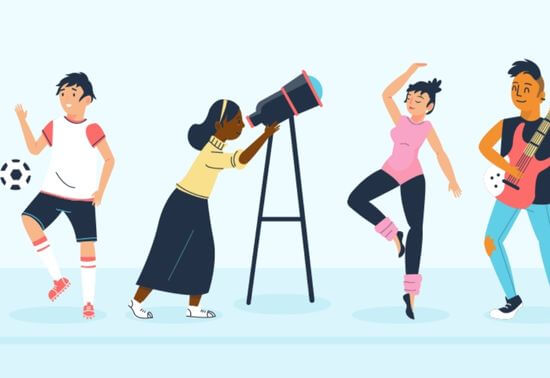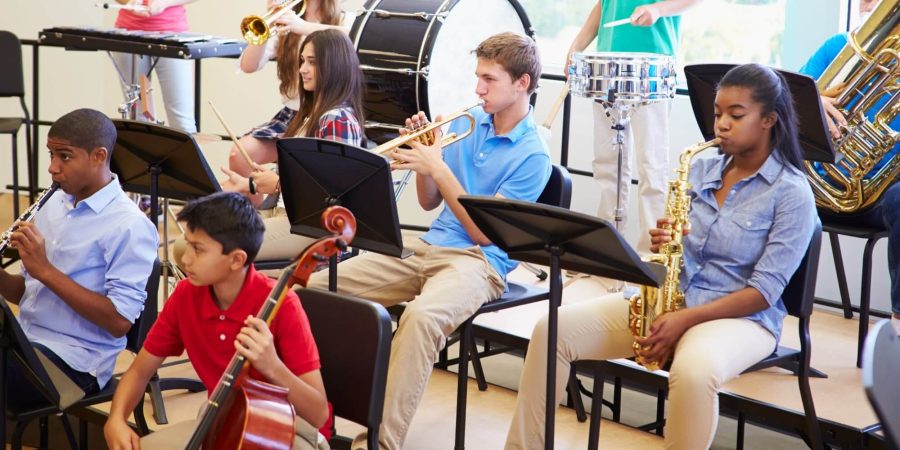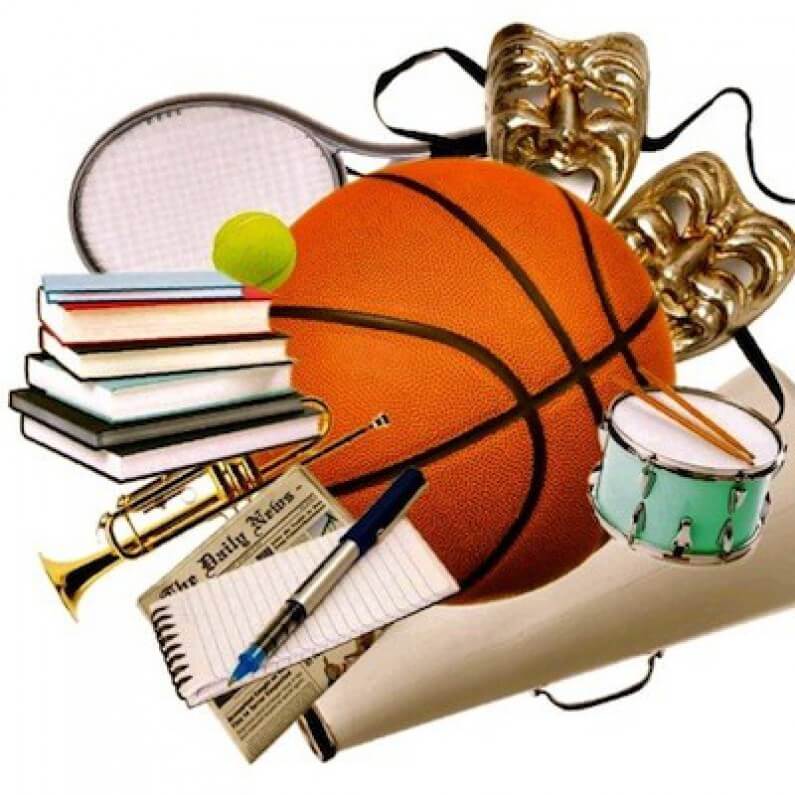Extracurricular activities play a crucial role in the holistic development of schoolchildren, intertwining educational and upbringing functions to foster personal growth and social skills. These activities provide students with the opportunity to explore their interests, demonstrate individuality, and socialize outside the conventional classroom setting. In private schools in Ajman, engaging in extracurricular activities allows students to enhance their academic knowledge, develop new skills, and experience a sense of independence.
Classification of Extracurricular Activities by Purpose
Extracurricular activities can be broadly classified into three categories based on their primary purpose: educational, leisure, and sports and recreation.
Educational and Educational Activities
These activities aim to stimulate the cognitive abilities of students, broaden their horizons, deepen their understanding of various subjects, and cultivate a strong civic sense. They are designed to complement traditional educational curricula and encourage students to pursue knowledge actively.
Examples of Educational Activities:
- English/Poetry Club: Enhances language skills, fosters creativity, and provides a platform for students to express themselves through writing and performance. Activities may include poetry readings, creative writing workshops, and literary discussions.
- Spelling Club: Improves vocabulary, spelling skills, and attention to detail. Students can participate in spelling bees and other competitions to test and enhance their abilities.
- Storytelling Club: Develops narrative skills, imagination, and public speaking abilities. This club often involves crafting and sharing stories, both written and oral, helping students build confidence in their communication skills.
- Quran Reading: Promotes spiritual growth, ethical values, and cultural understanding. Students can engage in recitation, memorization, and discussions about the meanings and teachings of the Quran.
Leisure Activities
Leisure activities are focused on helping students acquire new skills and abilities that are not typically part of the academic curriculum. These activities provide a relaxed environment where students can pursue their hobbies and interests.
Examples of Leisure Activities:
- Arts and Crafts Club: Encourages creativity and artistic expression through various mediums such as painting, drawing, sculpting, and crafting. Students can showcase their work in school exhibitions and art shows.
- Drama Club: Develops acting skills, confidence, and teamwork. Students participate in plays, skits, and improvisational activities, enhancing their understanding of literature and performance arts.
- Cooking: Teaches culinary skills, nutrition, and cultural appreciation of different cuisines. Cooking classes can include recipe creation, meal planning, and understanding the science behind cooking techniques.
- Sewing Club: Introduces students to the basics of sewing and fashion design. Activities may include learning to use a sewing machine, creating clothing items, and exploring textile arts.
Sports and Recreation Activities
These activities are geared towards the physical development and health of students. They promote healthy competition, personal ambition, and teamwork. Sports and recreation activities help students stay active, develop physical fitness, and learn the importance of sportsmanship.
Examples of Sports and Recreation Activities:
- Sports Club: Includes various sports such as football, volleyball, basketball, taekwondo, and karate. Students learn the rules and techniques of different sports, participate in training sessions, and compete in inter-school tournaments.
- School Choir: Fosters musical talent, teamwork, and performance skills. Choir members practice vocal techniques, learn a diverse repertoire of songs, and perform at school and community events.
- Gymnastics: Enhances flexibility, strength, and coordination. Gymnastics activities can include floor exercises, balance beam, and rhythmic gymnastics, promoting physical fitness and discipline.
- Chess Club: Develops strategic thinking, patience, and problem-solving skills. Students can compete in chess tournaments and engage in strategic game analysis to improve their skills.

Features of Extracurricular Activities in UAE Schools
Extracurricular activities in UAE schools are characterized by their focus on comprehensive student development, catering to the interests and needs of each individual. Key features include:
Comprehensive Development
Schools in the UAE emphasize the importance of a well-rounded education. Students are encouraged to participate in various electives such as drama, dance, fine arts, music, and photography courses. This holistic approach ensures that students’ lives are not solely centered around academics.
Active Involvement
Students are often taken on excursions to museums, dolphinariums, and other cultural sites. These outings provide practical learning experiences and foster a sense of curiosity and adventure. For example, a visit to a science museum can spark interest in scientific subjects, while a trip to a historical site can bring history lessons to life.
Local Needs
Each school in the UAE operates as a unique entity, tailored to the local community’s needs. This decentralized approach allows schools to offer activities that resonate with their specific student population. Schools may collaborate with local businesses and organizations to provide students with unique opportunities that reflect the cultural and economic landscape of their community.
Academic and Fun Activities
Local language schools combine academic learning with fun activities, including sports, excursions, and beach holidays. This blend ensures that students enjoy a balanced and engaging educational experience. For instance, students might participate in a beach clean-up project that combines environmental education with community service.
Cultural Immersion
Schools organize activities that immerse students in local culture, such as sand nights, cooking classes, mountain excursions, and boat trips through Old Dubai. These activities help students appreciate and understand the rich cultural heritage of the UAE. By participating in traditional Emirati crafts or learning about the country’s history, students gain a deeper connection to their surroundings.
Weekend Activities and Fun
Students can participate in weekend activities like trips to the beach, water parks, theme parks, shopping malls, and city walks. These outings provide relaxation and enjoyment, contributing to a positive school-life balance. Such activities also offer students the chance to bond with their peers and create lasting memories.
Ceremonies
Schools hold ceremonies to celebrate the achievements of students and staff. These events foster a sense of community and recognition for hard work and accomplishments. Whether it’s an awards ceremony, a graduation event, or a cultural celebration, these ceremonies provide meaningful opportunities for students to be acknowledged and celebrated.

Benefits of Extracurricular Activities
Engaging in extracurricular activities offers numerous benefits that contribute to the overall development of students:
Development of Social Skills
Extracurricular activities provide an informal setting for students to interact with peers, helping them develop communication, collaboration, and conflict resolution skills. For instance, participating in a team sport requires students to work together towards a common goal, enhancing their ability to cooperate and build relationships.
Building Leadership and Responsibility
Participation in clubs or school councils helps students develop leadership skills and a sense of responsibility. These experiences can shape future leaders and responsible citizens. By taking on leadership roles, students learn to manage tasks, delegate responsibilities, and inspire others.
Exploring Interests and Hobbies
Extracurricular activities allow students to explore and pursue their interests, which can lead to long-term passions and even influence future career choices. For example, a student who joins a robotics club might discover a passion for engineering and pursue a career in technology.
Enrichment of Learning Experience
These activities expose students to new topics and areas not covered in the standard curriculum, enriching their overall learning experience. Activities like science clubs or history societies can deepen students’ knowledge and understanding of specific subjects.
Development of Critical Thinking
Participation in debates, literature circles, and science projects enhances analytical and critical thinking skills, essential for academic and personal growth. These activities encourage students to think deeply, question assumptions, and develop well-reasoned arguments.
Boosting Self-Esteem
Success in extracurricular activities can significantly boost students’ self-esteem and sense of self-worth, encouraging them to strive for excellence. Achievements in these areas provide students with a sense of accomplishment and confidence in their abilities.
Development of Positive Habits
Extracurricular activities teach valuable life skills such as time management, community involvement, persistence, and routine development. For example, balancing schoolwork with club commitments helps students develop strong organizational skills.
Strengthening Student-Teacher Relationships
Informal interactions during extracurricular activities allow teachers to connect with students on a different level, fostering stronger, more supportive relationships. Teachers can serve as mentors and role models, providing guidance and encouragement outside the traditional classroom setting.

Teamwork and Goal Achievement
Students learn to work in teams, develop and implement ideas, overcome challenges, and achieve goals, all of which strengthen team spirit and collaboration. Team-based activities like group projects or sports teams teach students the value of cooperation and collective effort.
Creative Expression
Activities such as theatre productions, competitions, festivals, and exhibitions provide a platform for students to showcase their creative talents and abilities. Creative expression through art, music, drama, and writing allows students to explore and develop their unique voices.
Social Integration
Extracurricular activities help students engage with the world around them, improving their communication skills and social integration. Participating in community service projects or cultural events fosters a sense of belonging and civic responsibility.
Complementing Educational Process
These activities provide additional knowledge and experiences that complement the formal educational process, fostering a lifelong love for learning. For example, attending a guest lecture or participating in a science fair can inspire students to explore new areas of interest.
Professional Skill Development
Certain extracurricular activities, especially those related to education and career, help students develop essential skills for future professional success. Activities like internships, workshops, and career clubs provide practical experience and networking opportunities.
Creating a Positive Environment
Extracurricular activities create a positive and varied environment for learning and development, helping students become well-rounded individuals. By offering a range of activities, schools ensure that students have access to diverse experiences that support their growth and well-being.
End Note
In conclusion, extracurricular activities are an integral part of the educational landscape, providing students with a rich, diverse, and fulfilling experience. By participating in these activities, students can develop essential life skills, explore their passions, and prepare for a successful future. The benefits of extracurricular activities extend far beyond the classroom, shaping students into confident, capable, and well-rounded individuals. These activities are not just an addition to the academic curriculum but a vital component of a comprehensive education, nurturing students to become thoughtful, engaged, and productive members of society.

I am a career coach with more than 5 years of experience, helping job seekers navigate their job search through individual coaching, webinars and events. I am motivated by the mission to help people find self-fulfillment and belonging to their career.
